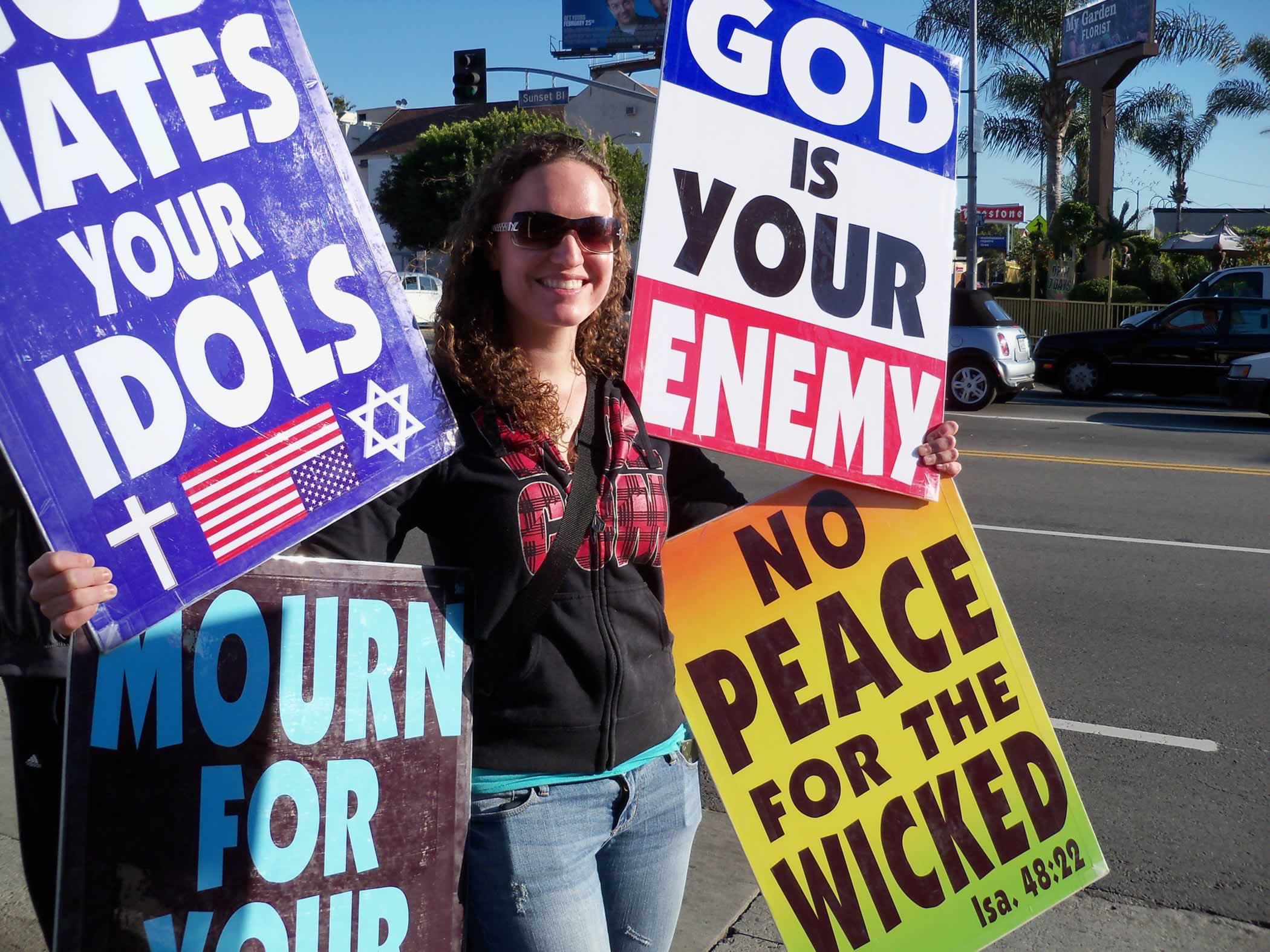
With all the grim fascination that comes with observing the vile picketing activities of the Westboro Baptist Church, it's easy to forget the plight of those on the inside.
Observers can, and frequently do, condemn the church members who show up at the moment of any American tragedy (the Newtown school shootings being the most recent) to wave disgusting banners and proclaim that the dead are the deserving victims of the country's tolerance of homosexuality. We have no problem empathising with the objects of the pickets, the grieving communities harassed in the name of a potent form of Christian fundamentalism.
What's harder, however, is finding a way to empathise with those conducting the picket – the people who have travelled hundreds of miles to inform mourning families that their loved ones will burn in hell. What motivates them to do this? What course did their life take that led them to be in in the Westboro Baptist Church and find themselves goading the victims of a tragedy? What kind of upbringing did they have? What kind of educational opportunities were they denied? And can they be helped?
These are difficult questions to ask when our instinctive reaction is contempt, but they're the ones we should be asking. Which is why I recommend reading this fascinating piece by Jeff Chu, which tells the story of how Megan Phelps-Roper, the 27-year-old granddaughter of Westboro Baptist leader Fred Phelps, came to leave the church last November and, along with her sister Grace, take tentative steps towards a life of freedom in the world outside.
Megan was a leading light in the Church, and her work managing Westboro's Twitter feed would play a role in her realisation that are other ways of looking at the world – testament, perhaps, to the power of the internet and free-flowing information to undermine closed and authoritarian world views. Megan and Grace now live in New York and, as Chu's article reveals, are discovering a new life that includes membership of a more fulfilling Christian community.
Published alongside Chu's piece is a short message from Megan, who describes how she and her sister are beginning to come to terms with their realisations about their childhoods and former adult lives:
"Where do you go from there?
I don't know, exactly. My sister Grace is with me, though. We’re trying to figure it out together.
There are some things we do know.
We know that we’ve done and said things that hurt people. Inflicting pain on others wasn’t the goal, but it was one of the outcomes. We wish it weren’t so, and regret that hurt.
We know that we dearly love our family. They now consider us betrayers, and we are cut off from their lives, but we know they are well-intentioned. We will never not love them.
We know that we can’t undo our whole lives. We can’t even say we’d want to if we could; we are who we are because of all the experiences that brought us to this point. What we can do is try to find a better way to live from here on. That’s our focus."
Their story serves to illustrate the indoctrinating power of cults and, most of all, remind us that the first victims of fundamentalism are those living on the inside.

